Search
Search Results

Definition
Inca Religion
For the Incas, as with many other ancient cultures, religion was inseparable from politics, history, and society in general. All facets of community life were closely connected to religious beliefs, from marriages to agriculture, government...
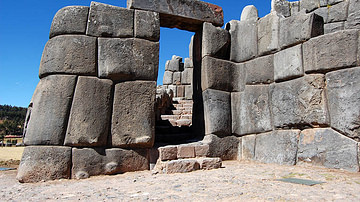
Definition
Cusco
Cuzco (also Cusco or Qosqo) was the religious and administrative capital of the Inca Empire which flourished in ancient Peru between c. 1400 and 1534 CE. The Incas controlled territory from Quito to Santiago, making theirs the largest empire...
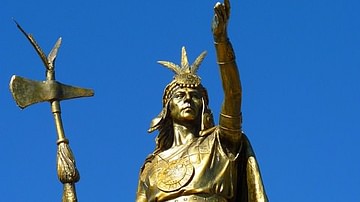
Definition
Inca Warfare
The warfare of the Inca civilization was characterised by a high degree of mobility, large-scale engagements of hand-to-hand combat, and the establishment of a network of fortresses to protect an empire of over 10 million subjects. Conquest...
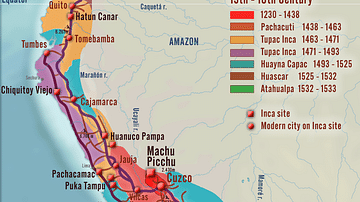
Image
Inca Empire - Expansion and Roads
A map illustrating the various phases of expansion of the Inca Empire from its origins in the 13th century until the 16th century.
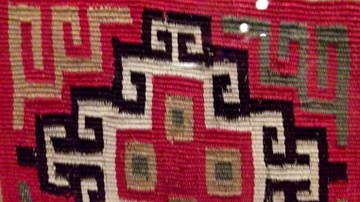
Article
Inca Textiles
For the Incas finely worked and highly decorative textiles came to symbolize both wealth and status, fine cloth could be used as both a tax and currency, and the very best textiles became amongst the most prized of all possessions, even more...
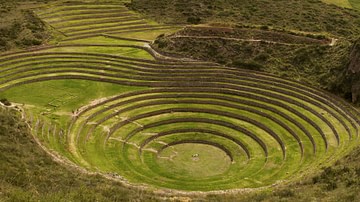
Article
Inca Food & Agriculture
The Inca empire controlled four climate zones and, consequently, their agricultural produce was diverse. Ancient Andean people were largely vegetarian, supplementing their diet with camelid meat and seafood if they could. The Incas developed...
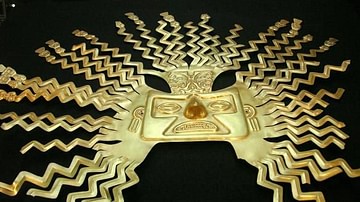
Definition
Inti
Inti was the Inca god of the sun and considered all-powerful but he was also a benevolent god and capable of great generosity. However, Inti could be angered and he would demonstrate his displeasure through solar eclipses which necessitated...
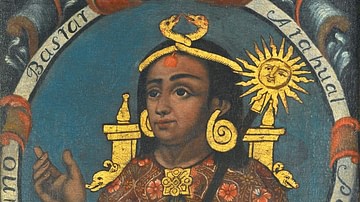
Definition
Atahualpa - Last of the Inca Rulers
Atahualpa (Atawallpa) was the last ruler of the Inca Empire. He reigned from 1532 until his capture and execution by the invading Spanish forces led by Francisco Pizarro in 1533. The troubled Incas had suffered six years of damaging civil...
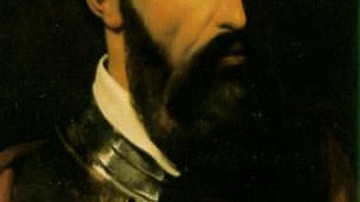
Definition
Francisco Pizarro
Francisco Pizarro (c. 1478-1541) was a conquistador who led the Spanish conquest of the Inca civilization from 1532. With only a small group of men, Pizarro took advantage of his superior weapons and the fact that the Incas were weakened...

Article
Pizarro and Atahualpa: The Curse of the Lost Inca Gold
In November 1532 CE, Francisco Pizarro led a group of about 160 conquistadors into the Inca city of Cajamarca. The illiterate and illegitimate son of an Extremaduran nobleman and an impoverished woman, Pizarro had spent his entire life on...